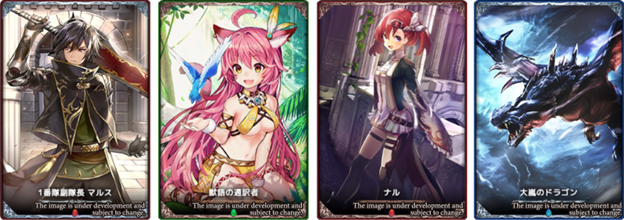Build a deck of collectible NFT cards and strategically place them on a game board to win crypto in this new PlayMining Play-and-Earn game.
Lost Archive +, a high-tech sword and sorcery-themed card battle NFT game, is launching in late May on the PlayMining GameFi platform, with NFT presales starting soon in late April. Lost Archive + is a Play-to-Earn (P2E) game that allows players to earn DEAPcoin ($DEP) tokens, which can be traded on popular crypto exchanges or used to purchase NFTs on the PlayMining NFT marketplace.
Combining tactics from deck-building card games and strategic placement board games, Lost Archive + gives players the opportunity to mix and match a wide variety of tactics. The game is free to play, while the collectible NFT cards increase one’s chances of winning in various ways. Decks can be shared with others, and NFTs can also be lent out to other players for a chance to earn a portion of proceeds won.
Lost Archive + is the sixth P2E game to launch on PlayMining, joining other popular gamefi titles JobTribes, Menya Dragon Ramen, Graffiti Racer, Cookin’ Burger and Lucky Farmer. PlayMining is also home to the Kamui Fujiwara Verse metaverse project and hosts the PlayMining NFT marketplace on their platform. DEP earned from any of their games can be used to purchase NFTs for other PlayMining games.
Lost Archive +: The Game and the NFTs
In Lost Archive +, players can battle against human opponents or story mode NPCs. The goal of each battle match is to reduce the opponent’s physical strength to zero by tactically playing cards on the game board in ways that weaken the opponent or strengthen friendly units.
There are three categories of NFT cards to help players devise winning strategies: minions, relics and spells. Minions are character cards that can be played directly on the game board to attack an opponent’s power and health. Relic cards are played on the board similarly to minions, but they are used to either weaken the opponent in different ways or give friendly units an advantage. Spell cards are like relics except that they are not played on the game board, instead creating immediate, one-time effects.
Players may also choose between three different factions of NFT cards to collect and play with, each featuring their own minions, relics and spells with unique visual styles that represent the game’s fantasy/science-fiction setting. The factions include the modernized nation of Ardbeg, the nature-focused land of Kalila, and the magical floating continent Port Ellen.
Tatsuya Kohrogi, CSO of PlayMining’s operating company Digital Entertainment Asset (DEA), likened Lost Archive’s P2E model to PlayMining’s most popular game, JobTribes. Another deck-building card battler, JobTribes has seen people earn over US$4.7 million since December 2021—and that is only counting the 9,300 ‘scholar’ players who borrowed NFTs to engage with the game without any upfront costs. DEA has high expectations for Lost Archive +, which builds upon JobTribes’ winning deck-building formula with the addition of tactical board placement.
Developed by Clover Lab. for the PlayMining GameFi Platform
While DEA develops many of their own games, they also allow other game studios to create NFT games for the PlayMining platform. Developed by long-running Japanese game company Clover Lab., Lost Archive + is PlayMining’s second title made by a third-party studio. DEA is actively seeking further game companies to partner with for future games.
DEA offers a number of benefits to companies who develop game titles for PlayMining. For starters, they charge much lower fees than other big-name distributors such as Nintendo and PlayStation, which generally take over 30% of profits. The PlayMining platform also features an NFT marketplace and developing metaverse, both of which can be used by game companies to drive profits and build IPs. In the highly competitive gaming industry, such advantages can spell the difference between success and failure for indie game studios with little capital to spend on IP monetization.
Visit PlayMining’s website and follow them on social media to get the latest updates.




































